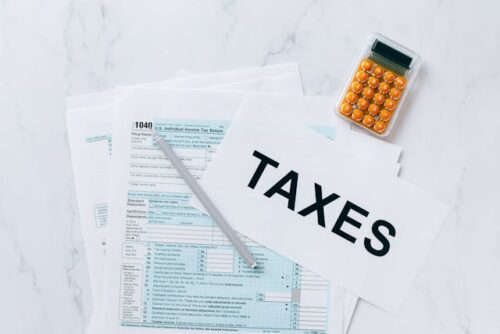
Tax season can be incredibly stressful for many, as you may feel overwhelmed by how much paperwork you must complete. However, while some people worry that making a slight error on their files will bring the Internal Revenue Service (IRS) to their door, others purposely manipulate their returns. However, many people do not realize the severity of these actions. As such, if you don’t pay your taxes, you can face intense repercussions. Keep reading to explore what you must know about tax evasion in Georgia and why it’s in your best interest to connect with a Georgia federal crime lawyer if you’re facing criminal charges.
What Is Tax Evasion?
Tax evasion is a crime under the IRS tax code. As such, it is a federal offense, but because you pay both state and federal taxes, you can also face charges from the state of Georgia.
Generally, tax fraud or evasion describes any time someone purposely avoids paying the full amount of taxes they owe. Businesses and individuals may report their income as significantly lower to manipulate their returns. For individuals, this includes failing to report other forms of income like cash tips or money from an independent side business and businesses may falsify records to make it appear as though they brought in less revenue than they did.
What Penalties Can I Face if I Don’t Pay My Taxes?
If you don’t pay your personal or business taxes, understanding the penalties you can face is critical. Generally, this is charged as a misdemeanor offense. Generally, this can warrant up to one year in jail and restitution.
However, it’s important to understand that tax evasion can often be charged in conjunction with other criminal offenses, like embezzlement or money laundering, which can increase the penalties you will face for this crime. As such, depending on the circumstances surrounding the crime and any associated offenses, you may be charged with a felony offense.
What Should I Do if I’m Charged?
If you are charged with tax fraud or evasion, it’s imperative to understand your legal options. Generally, to convict you, the prosecution must be able to show that you willfully and purposely misrepresented or falsified your tax documents. As many people make errors on their reports, it’s important to understand that if you can show that the discrepancy was a simple mistake and you had no intention of not paying your taxes, you may be able to avoid charges.
However, fighting for justice by yourself can be incredibly overwhelming, as you may be unfamiliar with the legal system. As such, you should connect with an experienced attorney from the Miller Law Practice to explore your legal options. Our firm understands how overwhelming these matters can be, which is why we are committed to fighting for you. Contact us today to learn how we can assist.